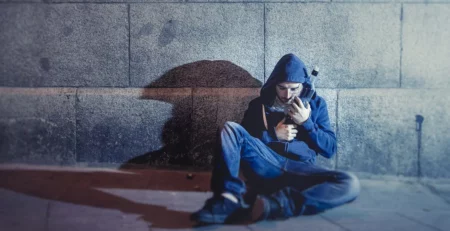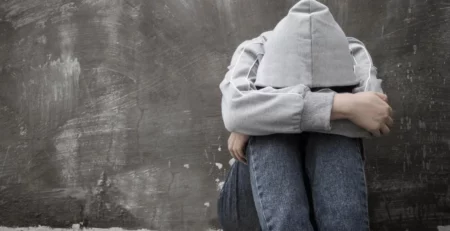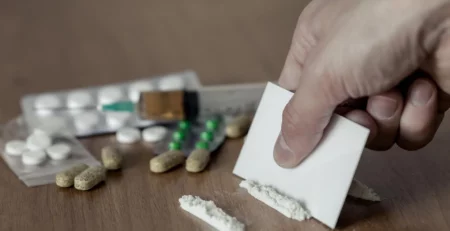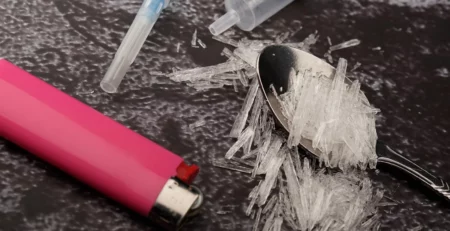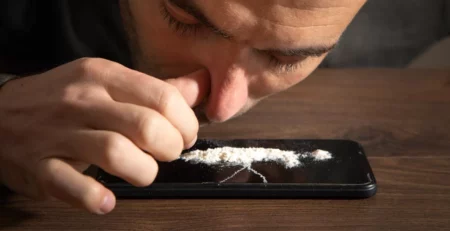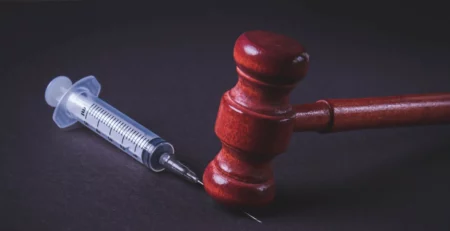Drug Dream Meanings and Myths
Coping With Drug Dreams During Addiction Recovery
When you halt substance abuse and enter addiction treatment, your brain and body can react in a variety of ways. Most people are aware of drug and alcohol withdrawal symptoms, which affect people during the earliest stages of their recovery journey. But, some other experiences are talked about less.
One additional problem you could face is something known as a drinking or drug dream. Drug-related dreams can take many different forms. Regardless, for those who have personal associations with addiction, it can be challenging to dream about anything related to drug or alcohol use.
What are drug dream meanings and why do they occur? These dreams are a potential mental byproduct of your efforts to get sober. While they can be deeply unsettling, drug-related dreams do not necessarily reflect a real desire to return to substance use.
When you seek support, you can get through drug-related dreams and the effects they have on you in the waking world. Icarus Nevada is here to help you find effective coping mechanisms for the challenges you face during recovery, including dreams and other sleep-related issues.
What Is a Drug Dream and What Does it Signify?

First, what is a drinking or drug dream, and how can you tell if you are having one? Drug dreams can refer to any dreams about drugs. In a drug dream, you might:
- Drink alcohol or take the drug that is the source of your addiction.
- Feel a sense of disbelief that you have done such a thing.
- Experience unpleasant emotions such as remorse, guilt, or fear.
Some people have other types of dreams, too. For example, drug-refusing dreams where someone offers you a substance like drugs or alcohol and you turn them down.
Or, witnessing drug-related activities in your dreams (e.g., watching other people use drugs and alcohol). Dreams involving cocaine and crack are also common for people who have histories with this drug.
No matter the drug, it can be disconcerting to have these dreams emerge from your subconscious mind, to say the least.
When you wake and realize that you have been dreaming, you may feel relief or a range of other emotions. This is completely normal, as it can be disturbing, scary, and upsetting to dream about drug-related activities when you’re in addiction recovery.
No matter your reaction, there are sometimes valuable insights to be gleaned from drug-related dreams.
Get Effective Detox and Rehab Options at Icarus
How Common are Dreams About Drugs in Addiction Recovery?
Around one third of United States adults in alcohol or drug addiction recovery report that they have drug dreams.
They can be more common in people more severely impacted by alcohol or drug use. You may experience this kind of dream during recovery from any form of substance addiction.
The Basis of Drug Dreams in Recovering Persons
What is the basis of a drug dream? In other words, why does this kind of dream occur? Research has helped us gain insights into why those recovering from drug use experience drug dreams and their deeper psychological aspects.
If you are affected by addiction, your brain has undergone significant changes in the way it functions. This can present in various ways in your waking life. For example, many people, especially in the early stages of recovery, face challenges like drug cravings and low mood.
It turns out that this could be the basis of drug dreams, too. Studies suggest that drug dreams reflect both the innate structure of the brain and changes produced by exposure to addictive drugs.
Relapse Dreams During Recovery From Drug Addiction

Is there a meaning behind your relapse dreams? Yes and no. Usually, these kinds of dreams occur most often in the earlier stages of substance abuse recovery.
As your treatment progresses, they tend to affect you less and less. This timeframe makes sense when you consider your circumstances at the start of substance treatment.
When treatment begins, you are just beginning to get the help you need to recover from addiction. This means that you have not had much time to address the destabilizing effects of continued substance cravings. In a sense, your relapse dreams can be a reflection of this state.
As your treatment helps dampen down your cravings, conditions that favor drug dreams may occur less often.
At the same time, relapse dreams can cause emotional turmoil and distress for some people in addiction recovery. When present, they can increase your involvement in negative states of mind. They can also make your substance cravings more intense. In turn, both of these things can make it harder for you to keep your addiction recovery going.
Night Terrors and Dreaming of Drug Use
People affected by addiction are at increased risk for a sleep disorder sometimes known as night terrors, also called sleep terror disorder. Also called sleep terror disorder, common symptoms of an episode of this disorder include:
- Experiencing powerful feelings of fear while asleep
- Flailing, kicking, shouting or screaming in response to these feelings
- Having difficulty waking up
- Not being able to recall what happened to you when you wake up
Are night terrors the same thing as drug dreams? No. Their symptoms and effects differ significantly from those of the typical drug dream. However, during recovery, you may experience both of these issues at one time or another.
Get Accredited Treatment Programs at Icarus – Call Now!
Do Sober People Have Drug-Related Dreams?
Dreams about drinking or taking drugs can occur in people with no history of previous drug and alcohol use. However, in these circumstances, drinking and drug dreams tend to hold no particular charge. Some people may associate them with specific emotional and symbolic meanings completely unrelated to addiction.
For example, those interested in dream interpretation might explore or hypothesize about what dreams about drugs could indicate about the subconscious mind. They may interpret drugs or drug paraphernalia as symbolism for something else.
But, in some people who have gone through treatment, such dreams can continue to occur long after sobriety is established. They sometimes last for years. In some cases, they may recur on and off for life. If this is true for you, understand that dreams don’t have to hinder your recovery process.
Steps to Get Rid of Drug or Drinking Dreams
How can you get rid of drug or drinking dreams? There is no single, surefire method of achieving this goal. However, there are things you can do to help yourself cope with the psychological aspects of these dreams and their effects if they are causing emotional pain.
Treatment Options for Drug Dreams and Their Effects

Treatment for drug dreams may include medication, psychotherapy or a combination of the two. In alcohol treatment, the medication used to help prevent relapses may have an indirect effect on drug dreams. Similar benefits may be gained from the relapse prevention medications used in opioid treatment.
Today, researchers are also looking at a more direct medication treatment. The name of this medication is prazosin. Prazosin works by helping shut down the pathway in your brain responsible for drug dreams. There is evidence to support its effectiveness. However, further study is needed.
Existing forms of psychotherapy might also be helpful. A treatment such as cognitive-behavioral therapy may not stop drug dreams from occurring. However, it may help you cope with the feelings triggered by such dreams, and it’s used frequently in substance use disorder treatment.
The Importance of Restful Sleep in Addiction Recovery
A range of significant sleep issues are common in people affected by addiction. This is due, in large part, to the effects of drugs and alcohol on brain chemicals called neurotransmitters. Sometimes, sleep problems help set the stage for addiction. Concerns like insomnia, for example, can lead someone to misuse or abuse substances.
However, drug and alcohol abuse can also hinder your ability to get enough quality sleep. Even specific drugs people use to get themselves to sleep can affect sleep negatively. Alcohol, for example, is known to disrupt sleep.
In rehab programs, there’s often an emphasis on improving the quality of sleep. This can be especially important in the early phase of your treatment. Experts offer a variety of tips on getting rest and relief in early addiction recovery. One big step is establishing a sleep routine that supports your health and well-being.
Creating Healthy Sleep Routines
What are healthy sleep routines? They typically consist of things such as:
- Setting aside enough time to get adequate sleep.
- Sticking to a consistent bedtime.
- Rising at the same time every morning.
A number of other tips may also be useful in helping you sleep better. Specific actions you may want to take include:
- Exercising regularly.
- Sleeping in a dark, quiet place with minimal potential distractions.
- Maintaining a comfortable temperature within the room while sleeping.
Many people also find deep breathing, meditation, and white noise helpful. Finding out what works for you can take time, but it is possible.
Addressing Dreams and Discomfort in Residential Rehab

Some people can recover from addiction while participating in an outpatient program. However, if you have moderate-to-severe addiction symptoms, you may need a residential program, instead. In either setting, a well-designed rehab program can help you cope with your drug dreams.
Talk therapy gives you a safe space to discuss what’s on your mind, which can include dreams about drugs and how they affect you. Both our inpatient and outpatient programs use talk therapy to help people achieve a lasting drug free life, develop a deeper understanding of themselves, and cope with triggers.
That said, in some cases, addressing dreams and discomfort in residential rehab may be easier. That is true because you will have more overall treatment time available. Additionally, if vivid dreams lead to drug cravings, you will have more support.
Up To 100% of Rehab Costs Covered By Insurance – Call Now!
Call Icarus in Nevada for Help With Dreams About Drugs
Need support to overcome dreams about drinking or using drugs? Turn to the addiction treatment specialists at Icarus Las Vegas. We offer comprehensive treatment options for all forms of substance addiction.
Whether you’re affected by drug dreams or another concern, we can devise a suitable recovery plan for your situation and help promote personal growth.
Call us today to start the healing process. We are dedicated to helping people from all walks of life regain their sense of health and well-being, so please reach out confidentially
FAQs About Drug Dream Meanings
What are some coping strategies for dreams about drugs in addiction recovery?

Dreams about drugs can cause distress for people recovering from addiction. Healthy coping mechanisms can include but aren’t limited to:
- Talking about your dreams with a mental health professional or sponsor (e.g., a sponsor you meet in support groups like Alcoholics Anonymous).
- Positive self-talk. Learning to talk yourself through drug cravings can be beneficial if you find that these dreams are triggering to you during everyday life.
- Many people with unresolved cravings find that distractions are a valuable tool, especially as they ride out the urge to use. For example, engaging in a physically active hobby when you are triggered to use.
It’s important that you don’t go through the recovery process on your own. Treatment provides individualized guidance that helps you care for your physical and mental well-being as you overcome substance abuse.
What do dreams about drugs mean?
Dreams related to drugs can have more than one cause. For those recovering from addiction, it could reflect the dreamer’s personal experiences with previous drug use habits. If these dreams interfere with your emotional well-being, talking with a treatment provider can help you make sure that your concerns are adequately addressed.
References
- Journal of Substance Abuse Treatment: The Reality of Drinking and Drug Using Dreams – A Study of the Prevalence, Predictors and Decay With Time in Recovery in a National Sample of U.S. Adults
- B;, J. (n.d.). Drug dreams: A neuropsychoanalytic hypothesis. Journal of the American Psychoanalytic Association.
- Home Page: Journal of substance use & addiction treatment. (n.d.-d).
- From the Department of Psychology (HT. (n.d.). Relationship between drug dreams, affect, and craving… : Journal of Addiction Medicine. LWW.
- Chaudhari, D., Okoroafor, N., Nadeem, H., Shah, M., Shah, M. A., Patel, M., Okonkwo, C. C., Inban, P., Sajjad, T., & Khan, A. (2023, July 11). A rare case of sleep terror disorder in an adult with chronic alcohol abuse: A case report and literature review. Cureus.
- B;, J. (n.d.-a). Drug dreams: A neuropsychoanalytic hypothesis. Journal of the American Psychoanalytic Association.
- Aggarwal, A., & Lindegaard, V. (2020, September 14). The use of prazosin in treatment of drug dreams in adolescents with substance use disorder: Two case reports. Psychopharmacology bulletin.
- Centers for Disease Control and Prevention. (n.d.-b). About sleep. Centers for Disease Control and Prevention.


